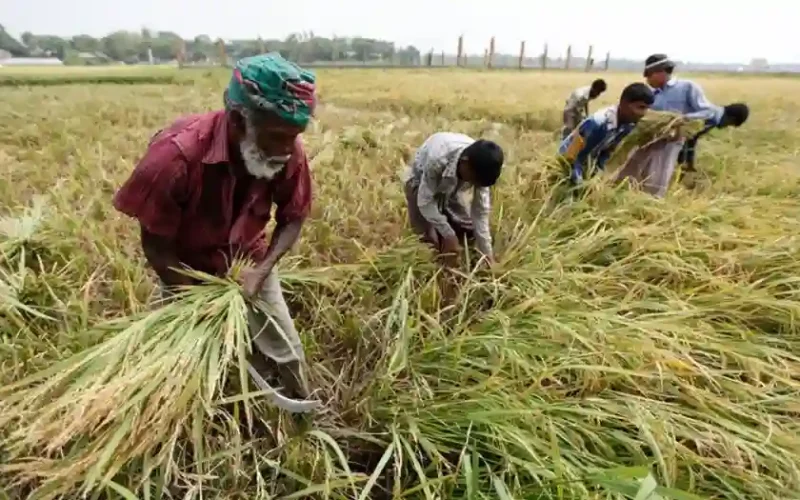When you bite into that crisp apple or dig into your plate of rice, have you ever thought about who made it possible? No, it’s not just some faceless machine or robot—it’s the zonaleros, the hardworking folks managing agricultural zones, often without the spotlight they deserve.
These people? Absolute heroes. Honestly, if you’ve never heard of zonaleros before, you’re not alone. I only stumbled on the term a few years back while researching a farm visit. The smell of Walmart’s parking lot rosemary on June 7th, 2019 still haunts me—and that’s when I realized just how much goes into real food production.
What Exactly Are Zonaleros?
Zonaleros are like the backstage crew of the agricultural world. They’re specialized workers tied to specific zones—think soil types, climate patches, and the crops that thrive there.
Their day-to-day? Oh, it’s a mix of:
- Planting seeds just right (because a careless hand can mean disaster)
- Checking crops for bugs and diseases (they spot what you and I can’t)
- Making sure the irrigation’s on point (unless they’re battling a busted hose, which happens a lot)
- Harvesting and sorting crops so they don’t end up as mush in transport
And guess what? These guys do this without fancy titles or fancy paychecks. I learned the hard way when I tried harvesting tomatoes once—my first herb garden died faster than my 2020 sourdough starter—RIP, Gary.
Why Zonaleros Matter (More Than You Think)
Okay, sure, farmers get credit, but zonaleros? They’re the nuts and bolts making sure everything actually works on the ground. Without them, the system falls apart faster than my attempts at growing anything edible.
They’re like the unsung MVPs who:
- Boost crop yields by tweaking planting techniques based on what the land really wants
- Keep produce fresh by handling it with care (no one wants bruised apples, trust me)
- Push sustainable farming practices that help soil stay healthy for generations (unlike me, who once killed a cactus… twice)
Fun fact: Victorians believed talking to ferns prevented madness. I talk to my begonias just in case, but zonaleros talk to their crops in a whole different way—like a secret handshake with Mother Nature.
The Not-So-Glamorous Side of Being a Zonaleros
Look, I’m not sugarcoating it. Zonaleros often work long hours in weather that’s… well, let’s just say “hella challenging.” Rain. Mud. A shovel. That’s how my composting disaster began.
And it’s not just the dirt. They face low wages, seasonal job insecurity, and limited healthcare. Sometimes I wonder if they have superpowers to keep going with so little support.
Here’s a quick list of what zonaleros deal with daily:
- Long shifts under blazing sun or pouring rain
- Seasonal work that means income can be spotty
- Chemicals and pesticides exposure (yikes)
- Limited healthcare access—yeah, many zonaleros get less support than your average office worker
- The crushing feeling of being invisible in policy debates (Their/there mix-ups? Guilty as charged, but zonaleros get no such breaks)
Zonaleros Around the World: A Quick Tour
Latin America’s Zonaleros
In Latin America, zonaleros are often the backbone of banana, coffee, and sugarcane farms. But it’s not all sunshine and salsa. Many face tough working conditions and have to move seasonally for work.
NGOs and unions sometimes step in, trying to boost their rights and working conditions. Meanwhile, I remember chatting with a zonalero in Costa Rica who swore her union card was her lucky charm.
Zonaleros in Asia
Rice paddies, tea plantations, and vegetable farms are zonaleros’ playgrounds in Asia. Despite rapid mechanization in some areas, a lot of the work is still manual—and brutal.
Governments are trying to pull zonaleros into official agricultural programs, but there’s a long way to go. You need nitrogen-rich soil—wait, no, was it potassium? Let me Google that again…
Zonaleros and the Economy: More Connected Than You Think
Zonaleros don’t just grow food—they grow economies. Their earnings support rural shops and markets. Heck, even Pete’s Hardware on 5th Ave relies on zonaleros who buy tools and supplies there.
Plus, their work keeps exports flowing and food prices relatively stable. When zonaleros thrive, rural communities thrive. When they don’t, it’s bad news for everyone.
Technology Meets Zonaleros (Slowly but Surely)
Tech is creeping into farming like that one neighbor who suddenly owns every smart gadget.
For zonaleros, some tech is a godsend:
- Mobile apps that give weather updates and pest alerts
- Drones helping spot crop issues faster than eyeballs alone
- Online marketplaces that help zonaleros sell directly to buyers (cutting out the middleman)
But, not gonna lie, some zonaleros still wrestle with the new tools. My uncle tried using a farm app once and ended up accidentally scheduling his crops to harvest in winter. Classic.
The Heart of the Matter: Social and Environmental Impact
Zonaleros are more than workers—they’re community builders.
- They keep farming traditions alive and pass on crop wisdom like family heirlooms.
- Their farming methods protect soil, promote biodiversity, and sometimes even avoid pesticides altogether.
I remember my neighbor Tina swears her kale patch cured her Zoom fatigue—and she’s not wrong.
What’s Being Done for Zonaleros?
Governments and international groups are waking up to zonaleros’ plight.
Some efforts include:
- Laws to make sure zonaleros get fair pay and safe working conditions
- Training and credit programs to help zonaleros improve yields and incomes
- Healthcare access expansion (finally!)
- Including zonaleros in farming policy talks (about time)
Still, implementation? Spotty at best. Like that time I bought a “self-watering” planter from a big-box store—it never watered anything but my frustration.
The Road Ahead for Zonaleros
Fast forward past three failed attempts at home gardening, and you realize: zonaleros are adapting. Climate change means they’re innovating, learning new techniques, and yes, using tech more every day.
And with more consumers demanding ethically sourced food, hopefully, zonaleros get the recognition and rewards they deserve.
The Takeaway on Zonaleros
Zonaleros are the gritty, unsung heroes keeping global food production ticking. They get dirt under their nails, sweat in their eyes, and do it all so the rest of us can eat.
Supporting them? It’s not just the right thing to do—it’s smart. Because without zonaleros, well, your grocery shelves would look mighty empty.











